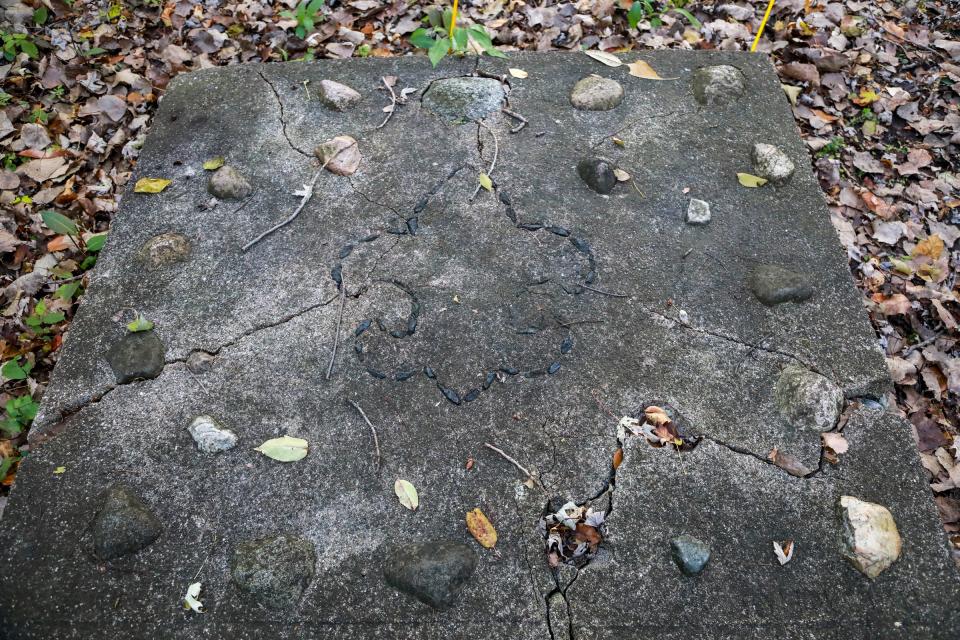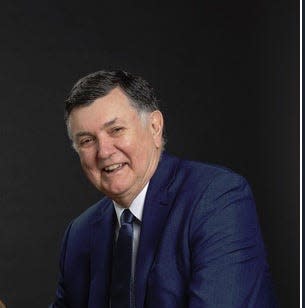My son died by suicide. We must be brave enough to admit the problem and help veterans like him.
If you or someone you know is in need of mental health resources and support, please call, text or chat the 988 Suicide & Crisis Lifeline or visit 988lifeline.org for 24/7 access to free and confidential services.
"Thank you for your service."
It’s a common phrase these days, a respectful nod when you encounter someone with a military background.
But do we really mean it? Do we really value the men and women who served their country? Or is it just lip service?
When I consider the number of veterans who die by suicide each year, I wonder if it’s the latter.
According to the 2023 National Veteran Suicide Prevention Report, released in November, 6,392 veterans died by suicide in 2021, an increase of 114 from the previous year. Veteran suicides have generally trended up – slowly but steadily – since 2001.
Although most people remain unaware of this underreported issue, I learned in the most difficult way possible. My son, Ryan, a Marine Corps sergeant, died by suicide in 2017.
It was Memorial Day weekend.

Like many loved ones left behind, I wanted answers. Ryan suffered from post-traumatic stress disorder and had trouble transitioning to civilian life after he left the Marines. In those respects, he is not alone.
Suicide – whether it’s veterans, LGBTQ+ youth, senior citizens or anyone else – is a public health crisis. In fact, more than 49,000 people in the United States died by suicide in 2022, a record high.
Veterans, the data show, are particularly at risk for suicide.
Call 988 instead of 911: A year after 988 suicide hotline launched, most Americans still don't know about it. Why?
In comparison to the general population, which has a suicide rate of 14 per 100,000 people, the rate for veterans is more than double at 34 per 100,000, according to the U.S. Department of Veterans Affairs.
Likewise, here in Michigan, the veteran suicide rate of 31 per 100,000 nearly doubles the overall state rate of 18.
The disproportionate numbers crystalize the severity of the situation. But surrender is not an option. Fighting back is.
We must be brave enough to admit the problem, and loud enough to bring it from the shadows.
Opinion alerts: Get columns from your favorite columnists + expert analysis on top issues, delivered straight to your device through the USA TODAY app. Don't have the app? Download it for free from your app store.
Don't go it alone. Be strong enough to seek help.
Veterans, by and large, are proud and stoic. Self-reliance and decisive action are ingrained qualities. Therefore, our message must be direct: Don’t go it alone. Be strong enough to seek help.
Improving and expanding access to government care and resources is among the call to action in the latest National Veteran Suicide Prevention Report. More than half of veterans who died by suicide in 2021 did not receive Veterans Health Administration or Veterans Benefits Administration services in the two years preceding their deaths. Enabling more intervention is a key step.
Veterans deserve help as civilians: We fail veterans once they return to civilian lives. That doesn't have to be the case.
In addition to connecting veterans with mental health services, we must focus on nonclinical suicide risk factors like employment, housing and legal support.
Although veteran suicide is a complex problem to address, I’m encouraged that leaders in Michigan are taking more recognition. The current state budget includes $1.2 million for veteran suicide prevention efforts and the ongoing Veteran Connector initiative – which encourages medical providers and other human service organizations to specifically identify veterans – are signs of progress.
Since Ryan’s passing, I’ve learned that suicide grief requires a different path to healing and acceptance. That's why I’ve made it my personal mission to prevent other veterans from a similar outcome.
Thanking a veteran for their service is a great thing to do. So is learning how to reduce their risk of suicide.
From now on, let’s prioritize doing both.

Greg Boudreau of Grosse Pointe Shores, Michigan, is a suicide loss survivor and member of the board of directors of Kevin’s Song, a suicide prevention organization. This column first published in the Detroit Free Press.
You can read diverse opinions from our Board of Contributors and other writers on the Opinion front page, on Twitter @usatodayopinion and in our daily Opinion newsletter.
This article originally appeared on Detroit Free Press: Veteran suicide rate rises in US. They deserve our help fighting back

